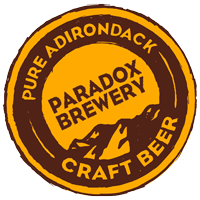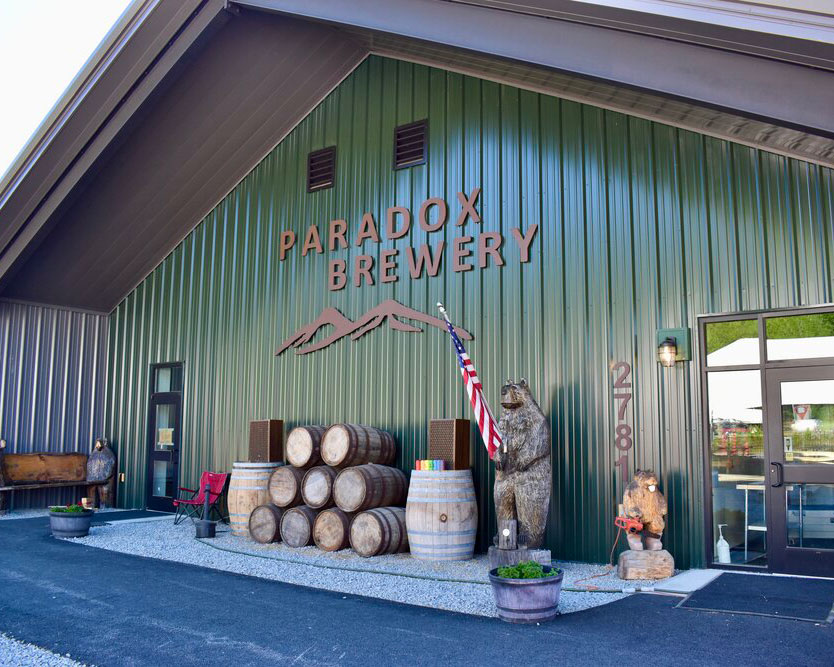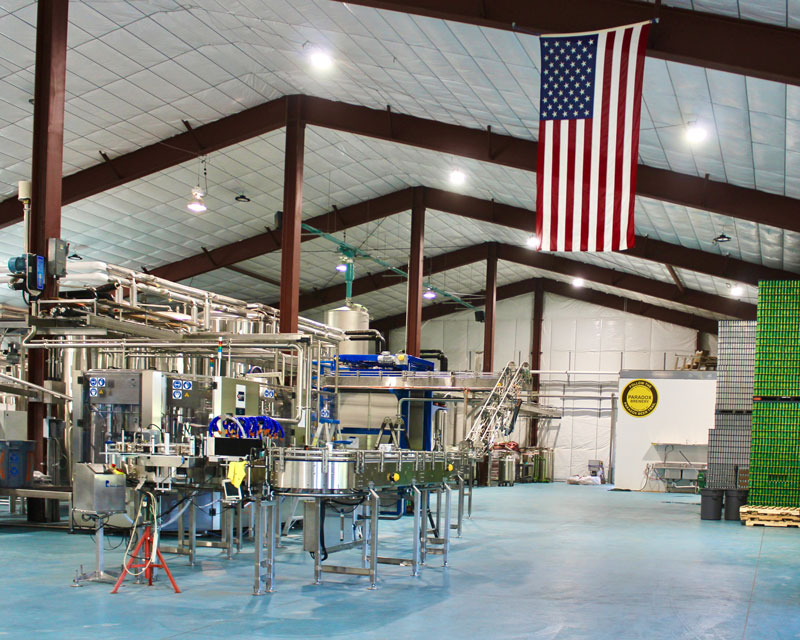Paradox Brewery
Implemented Sustainability practices to reduce waste generation and energy consumption
 Paradox Brewery is a small craft brewery located in North Hudson, New York. In 2019, they produced approximately 3,800 barrels of beer for distribution and consumption in their on-site taproom. In addition to typical production, Paradox also pursued plans to build an additional brewery and expand their capabilities. The COVID-19 pandemic impacted production of the entire brewing industry, but Paradox remained determined to maintain environmental excellence. The New York State Pollution Prevention Institute (NYSP2I) at Rochester Institute of Technology (RIT) and Cornell University’s Cornell Enology Extension Laboratory (CEEL) virtually toured Paradox on Tuesday, November 3, 2020.
Paradox Brewery is a small craft brewery located in North Hudson, New York. In 2019, they produced approximately 3,800 barrels of beer for distribution and consumption in their on-site taproom. In addition to typical production, Paradox also pursued plans to build an additional brewery and expand their capabilities. The COVID-19 pandemic impacted production of the entire brewing industry, but Paradox remained determined to maintain environmental excellence. The New York State Pollution Prevention Institute (NYSP2I) at Rochester Institute of Technology (RIT) and Cornell University’s Cornell Enology Extension Laboratory (CEEL) virtually toured Paradox on Tuesday, November 3, 2020.

Achievements to date
Paradox’s brewing system utilizes hot liquor tanks (HLT) and cold liquor tanks (CLT). These tanks store water that is used either as heating or cooling fluid for the various heat exchangers in the brewing process. They reduce water use by reutilizing the same water for multiple purposes. Paradox reuses yeast strands up to six times before disposing it. Occasionally, they are able to utilize it up to 10 times or more, avoiding a significant amount of waste. Paradox also recovers raw beer from solids coming out of the kettle and recovers processed beer from the fermentation wastes, using a centrifugation system. Other benefits of clarification with a centrifuge are increased production, shorter tank turns, better aromas, and more profitable batches.
Paradox has implemented some energy-saving measures, including light-emitting diode (LED) lights, which are far more efficient than compact fluorescent lights. In addition, Paradox’s HLT-and-CLT system uses heat exchangers to recapture energy exiting the kettle to preheat water for the next batch. While insulating all pipes helps to reduce process energy use, Paradox leaves some piping uncovered to provide heat to the building, reducing the need to spend energy heating the building with natural gas. To reduce chemical use, Paradox purchased an automated clean-in-place (CIP) system that allows for safe and efficient tank cleaning. This system can minimize water and chemical use and reduce exposure of staff to cleaning agents.

Opportunities
After performing a site assessment of Paradox, NYSP2I and CEEL specialists made a series of recommendations to improve the brewery’s sustainability strategy. These are listed below.
To reduce water use:
- Install water meters on lines that feed directly into brewing equipment to track water use. A greater understanding of how water is flowing could help Paradox to focus their water use reduction efforts.
To generate less waste:
- Partner with an organization to manage solid waste produced during brewing. For example, TerraCycle collects and recycles normally difficult-to-recycle waste streams and offers many no-cost programs. This could help Paradox to avoid the cost of separating recyclable items, and reliably dispose of their solid waste.
- Implement a code of conduct and scorecard with their key suppliers. Aligning a supplier code of conduct with Paradox’s sustainability goals and securing a supplier scorecard will improve communication and set expectations that align with their sustainability policies.
To be more energy-efficient:
- Maintain standard procedures with their CIP system by writing standard operating procedures (SOPs) for the new cleaning process. SOPs will ensure that the machinery is operated correctly, that safety is maximized, and that concentrations are consistent in every cleaning cycle.





